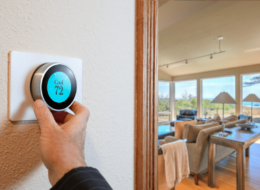Wheelchair ramps are a crucial component in making public places accessible to wheelchair users — but how do they fit in when it comes to your personal home?
The cost of purchasing and installing a wheelchair ramp can be a significant burden for many individuals, which leads many people to wonder if Medicare covers the cost of a wheelchair ramp.
In this article, we’ll explore the situations where Medicare may pay for wheelchair ramps, and when they won’t.
Does Medicare Cover Wheelchair Ramps?
The answer to this question is, unfortunately, often “no”.
It’s a bit confusing to explain. Medicare Part B subsidizes the cost of “Durable Medical Equipment” (DME) such as wheelchairs or walkers, but ramps tend to be tougher to get covered.
This is because the wheelchair ramp must be considered “medically necessary” by a licensed physician — and they rarely are.
Why Doesn’t Medicare Cover Ramps?
Medicare’s policy for durable medical equipment includes a diverse selection of equipment designed for medical purposes, such as wheelchairs, hospital beds, canes, oxygen equipment, etc. These items are considered medically necessary for the individual’s care.
Medicare generally does not cover the cost of wheelchair ramps because they are not considered directly medically necessary.
They may make life easier, but they aren’t usually classified as medically essential devices.
Medicare generally covers medical equipment and supplies that are prescribed by a doctor to treat or manage a medical condition.
While a wheelchair is considered a necessary medical device for individuals with mobility impairments, a wheelchair ramp is considered an architectural modification to a home or building rather than a medical device.
Therefore, the cost of the ramp itself is not covered by Medicare.
However, there are other programs and resources that can assist seniors with the cost of purchasing and installing a wheelchair ramp if they don’t have the finances to arrange it themselves.
In What Cases Are Wheelchair Ramps Covered By Medicare?
In certain cases, Medicare may cover the cost of a wheelchair ramp. However, the coverage is limited to situations where the ramp is deemed medically necessary equipment, such as in relation to:
- Medical necessity: The ramp must be necessary for medical reasons, such as providing access to medical treatment or therapy.
- Homebound status: The individual must be homebound, meaning they cannot leave their home without significant difficulty or assistance.
- Doctor’s prescription: The ramp must be prescribed by a doctor as part of the individual’s treatment plan.
- Cost-effectiveness: The cost of the ramp must be reasonable and necessary compared to other available options.
It’s important to note that even when Medicare will agree to pay for a ramp, it only covers the cost of the ramp itself and not any modifications that may be necessary to the home or building, nor the cost of installation.
If an individual does not meet the criteria for Medicare coverage, there are other options available, such as Medicare Advantage or private insurance companies. There are also several organizations listed below which may be able to help.
Alternatives to Medicare Coverage for a Wheelchair Ramp
If Medicare does not cover the cost of a wheelchair ramp, there are other options available. Some of these include:
- Purchase a portable ramp. While installing a permanent, long-term wheelchair ramp can be a costly endeavor, there are plenty of more affordable yet durable portable wheelchair ramps that you can purchase without spending too much and set up yourself in your own home. This will likely only be a doable option if the entrance to your home isn’t especially steep or complicated.
- Non-profit organizations: Many non-profit organizations offer financial assistance or grants to help seniors with the cost of purchasing and installing a wheelchair ramp. Some examples of such organizations include Rebuilding Together, the Reeve Foundation, The Home Depot Foundation, Habitat for Humanity, and United Way.
- Veterans Administration: The Veterans Administration may cover the cost of a wheelchair ramp for veterans with disabilities.
- State and local programs: Some states and local communities offer programs that provide financial assistance or low-cost loans for seniors who need a wheelchair ramp. Make sure to check out our guide on free and discounted home repair for seniors to read more about these home modification resources.
- National resources. The National Council on Independent Living and the Corporation for National and Community Service may also have resources for getting free or discounted wheelchair ramps.
- Community organizations: Seniors may be able to find assistance from community organizations, such as churches or local charities, that offer volunteer services to build and install wheelchair ramps for those in need.
- Medicare Advantage plans: Some Medicare Advantage plans may cover the cost of a wheelchair ramp as a supplemental benefit, so it’s worth checking with the individual’s plan provider to see if this is an option.
Tthe question of whether Medicare covers the cost of a wheelchair ramp is not a simple one to answer.
While Medicare may cover the cost of a wheelchair ramp under certain circumstances, it rarely happens and claims are usually rejected as wheelchair ramps are not often considered medically essential.
That being said there are options out there.
If you or a loved one has mobility issues and needs a wheelchair ramp to safely navigate their home, it’s essential to explore all of your options to find the best solution for your needs and budget.
FAQs About Medicare Covering Wheelchair Ramps
How do I know if I qualify for Medicare coverage of a wheelchair ramp?
In order for a ramp to be considered a covered benefit, you must meet the criteria outlined above, including medical necessity, homebound status, doctor’s prescription, and cost-effectiveness.
Does Medicare cover the cost of installation or modifications to my home or building?
No, Medicare only covers the cost of the wheelchair ramp itself — it doesn’t cover home modifications or installation.
What do I do if Medicare doesn’t cover the cost of my wheelchair ramp?
There are other options available, including Medicaid, the Veterans Administration, and non-profit organizations that provide grants or financial assistance.
Does Medicaid pay for ramps?
The same rules of Medicare generally apply to Medicaid — they’ll only cover wheelchair ramp costs if the wheelchair user meets certain criteria, such as having a medical need for the ramp and meeting income and resource requirements set by the state. The Medicaid requirements vary by state, so check with your individual’s state Medicaid agency to determine if a ramp would qualify for coverage.




